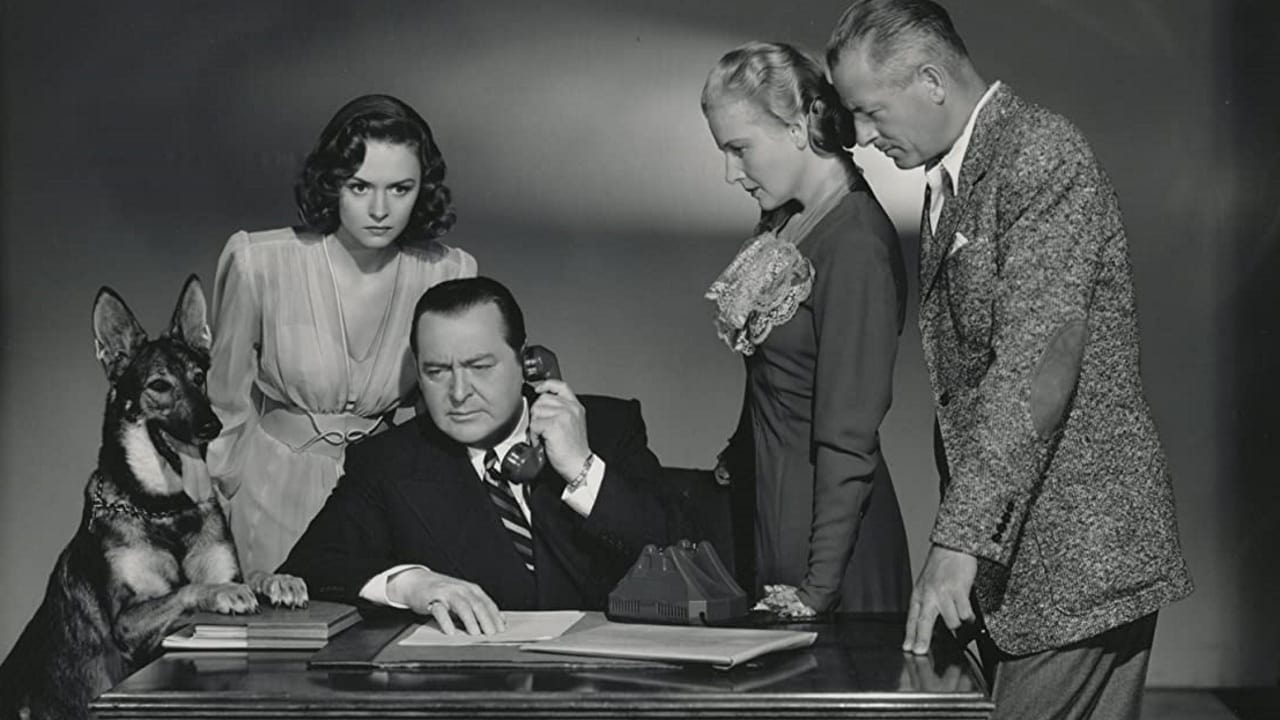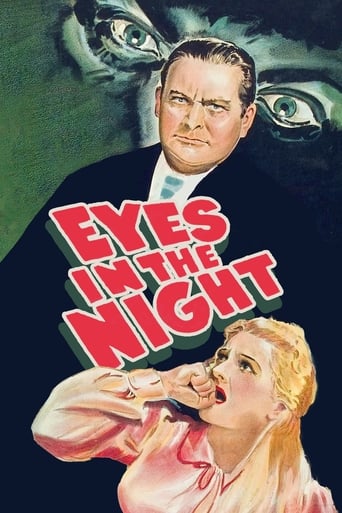

Blind detective Edward Arnold (as Duncan "Mac" Maclain) and his faithful dog "Friday" are visited by actress friend Ann Harding (as Norma Lawry). Retired from the stage, Ms. Harding is worried because an old flame is making love to her bratty teenage step-daughter Donna Reed (as Barbara). Harding attempts to visit Ms. Reed at her lover's apartment and finds a dead body. Reed thinks Harding committed the murder and demands she leave husband and father Reginald Denny (as Stephen Lawry). Harding asks Mr. Arnold to investigate, but the dead body is missing...To investigate, Arnold moves into Harding's estate posing as her heretofore unknown "Uncle Mac" and finds the household staff infiltrated with Nazi spies. Next to show up as a guest is playwright Katherine Emery (as Cheli Scott), who plays a surprisingly central role. Everyone has a lot of fun, especially Arnold and his dog "Friday". New director Fred Zinnemann handles his second full-length feature assignment well. This was the first in a series of crime dramas starring Arnold as the disabled detective. "The Hidden Eye" (1945) was a belated second, and last, adventure.****** Eyes in the Night (10/16/42) Fred Zinnemann ~ Edward Arnold, Ann Harding, Donna Reed, Katherine Emery
... View MoreI don't know how many biscuits they paid the dog Friday, but however many, he deserved more. Breaking up a Nazi plot must have been tough for a German Shepherd, but he proves he's as American as any of us mixed breed humans. Still, it must have been tough ignoring the come-on from that sexy French Poodle. But then duty comes first, even for our four- footed allies.It's a tough bunch of Nazi spies, led by a woman (Emery) who could easily boss Hitler around. Naturally, they're after some secret gizmo that'll help them win the war. And only Friday and his blind owner are in the way-- now there's an imaginative variation on the amateur sleuth genre so popular at the time. Arnold's effective as the blind gumshoe, projecting enough dominant personality to compete with the bad guys. And being an MGM production, no corners are cut even though it's a b&w B-movie.Zinnemann directs with style and economy, showing why he's slated for bigger things. Then too, the visuals have an almost noirish look since Maclain works best in the dark. And who could overlook the lovely Donna Reed, even though her bumptious Barbara Lawry is a long way from Reed's usual sweetness and light. Anyhow, it's an entertaining, different kind of detective movie, even if the plot is a little stale.
... View MoreThat dog Friday! In between Rin-Tin-Tin in the 1920s (also a German shepherd) and Lassie just a season or two later I discovered by seeing this film for the first time that there was also Friday, actor-dog extraordinaire! Not only was Edward Arnold deprived of a series and confined to but one more sequel to this very clever and entertaining movie in which his character as a blind detective might have gone on for quite a while, but Friday never got off the ground as a dog star either. And judging from his astonishing tricks and acting accomplishments in this film he would have continued as a canine sensation if they'd only have let him! As to handicapped detectives, Edward Arnold's role seemed to be a clear predecessor to Raymond Burr's Ironside some decades later as a wheelchair-bound but equally efficacious lawyer.As I watched this plot unfold, with the manipulative and steely step-daughter played so brilliantly and uncharacteristically (considering her later popular and more sympathetic roles) by Donna Reed as she constantly confronted her long-suffering stepmother Ann Harding, I could not help but be struck by the parallel to Mildred Pierce, filmed just a few years later. In that film the corresponding parts were taken by a likewise debuting and equally bitchy Ann Blyth and the much put-upon mother, veteran Joan Crawford. I wonder if the makers of MP had Eyes in the Night in the back of their mind as they wove their own plot.
... View MoreIf you're a dog lover like me, you'll find this one hard not to like! Good old "Friday" steals this show-with some able assistance from a very keen and rugged blind man. I found this one easy to follow and it kept my interest all the way. A really neat mix of intrigue, mystery, and humor to boot. Oh...and some espionage thrown in as is per this era's thematics. The gal who plays the enemy is quite wicked! This is a murder mystery that will get you smiling! A fun and easy frolic minus a tangled plot that uses all the "senses". Oh, and a young Donna Reed.......not bad at all. This one makes Rin Tin Tin and Lassie look like amateurs!
... View More